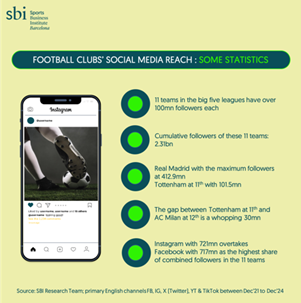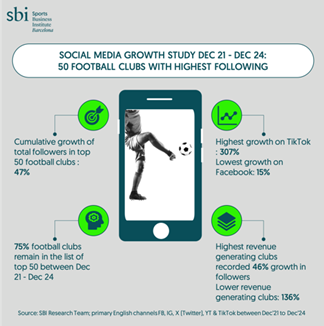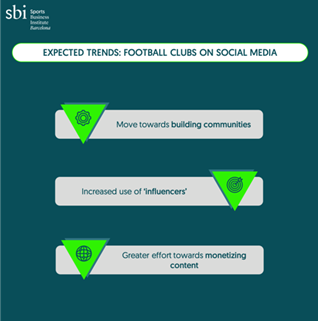Social Media: From Connecting Fans To Becoming An Engagement Platform
The relationship between social media and sports is profoundly interconnected. It has come a long way from being an information source to becoming the medium for interaction and engagement with fans and further looking at a deeper interactivity and monetising platform.
Social media platforms have become an integral part of sports industry. Availability and acceleration of digital adoption especially post-pandemic has changed the way social media is considered.
As per the 2022 Global Sports Marketing Report from Nielsen, 32% of sports fans — and more specifically, 43% of Gen Z fans use social media platforms while watching live sports. With more people engaging on social media with their favourite sports team, it has become all the more important for the teams to create and manage a steady stream of content in order to keep the fans engaged and involved.
In this blog, we take a look at the impact of social media on football clubs and how a sound content strategy can make the difference.
The Global Reach
The rise of internet connectivity has been a game changer for the sports industry. News, opinions, highlights traveled instantaneously, far and wide. With social media, a whole new level of fan engagement began.
For clubs, athletes, sponsors, rights holders, social media platforms were the fastest and easiest way to pass a message across and connect with fans more closely. They could also reach newer territories and develop and establish a relationship with fans from those areas. Fans began to love it and felt closer to their favourite athlete or club.
One of the most significant achievements of social media is its role in expanding the European club football fan base throughout the globe. Fans from countries with little or no historical connection to European football clubs began to be associated with them and started to form a relationship.
A study of the social media fan following of the 25 most followed football clubs between Oct 2021 to Oct 2024 gave interesting results. Platforms used for the study are primary English channels clubs in Facebook, Instagram, YouTube, X (formerly Twitter) and TikTok.

Content Structure Change
Over the time, change also happened in the way content was shared. From simple text-led content over Orkut to a more involved, visual-led content, the platforms have also evolved, resulting in the phenomenal growth of TikTok or Instagram.
As per the IMG Digital Trends 2025 report, in recent years short-form video platforms have exploded in recent years with TikTok having 1bn+ monthly active users, Instagram Reels, which is only four years old, reports that 2.35bn people interact every month with the majority of the users in the 25-34 age group. That’s pretty much consistent with the growth of TikTok followers seen amongst the football clubs.
Our study of social media fan following (as mentioned above) indicates:

The rapid integration of social media and sports led to developing and creating specialised content, each meant for a particular social media platform. Like TikTok which specialises in short-form content or X (formerly Twitter) for live updates or YouTube for long-form content, Facebook for demographic-specific content and so on. Content is now a very serious business and so are the strategies behind creating and distributing them.
With the growing need for specialists in this field, SBI brings Postgraduate Diploma in Football Digital Media & Communications, a program designed to help you gain an in-depth understanding of the global football industry, equipping you with the tools to connect with fans, build impactful campaigns, and drive the future of sports communications.
Beginning March 17, 2025, admissions are open. You can read more about the programme here
Future of Social Media in Sports
Till now, we have the seen the use of social media to increase reach and keep fans engaged by churning out meaningful content, both during matches and beyond that.
In 2025, we expect football clubs to adopt a wider objective-led approach towards their social media following:
– Move towards building communities: As is estimated by experts, the shift will now be more towards personalisation. That essentially means moving from mass to groups with similar choices. Sports organisations have already invested and are investing in AI tools and other components of digital infrastructure to develop such unique offerings.
– Increased use of ‘Influencers’: It can address two problems. One, influencers have the talent to create content bringing authentic connections with the club’s fans, thus create communities. The second big challenge is the lack of user data ownership. With an influencer, a part of the data-understanding can be solved through specially created content. Also, let’s not forget the fact that athletes are becoming super-influencers themselves, creating content to forge authentic connections with their own fans. Clubs using their athlete-influencers would be even more beneficial
– Monetising content: Directly, clubs can monetise the platform through native advertising, sales and subscription avenues. Indirectly, monetisation can be achieved through curated sponsorships and partnerships.

Social media is not going to be the same at all.
In Conclusion
Social media will continue to play the pivotal role of providing superior fan connect for the football clubs. Only that in 2025, the nature and objective will possibly shift towards a more strategic nature. The availability of advanced technology tools will only help the clubs create deeper connections by not only enhancing the overall fan experience but get a way to monetise as well.






